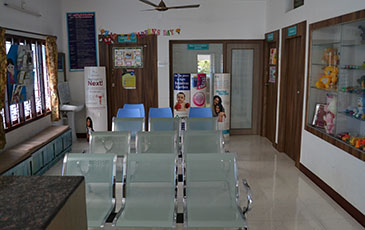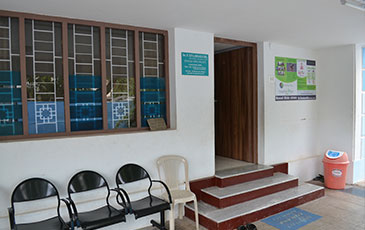Constipation
Author:Dr. P. Siva Bharathi, M.D (Peds), AB (USA).
INTRODUCTION: A child with constipation has one or more of the following
- Infrequent, hard, large stools
- Difficult and painful bowel movements
- Has fewer than 3 stools per week
Normal Bowel Pattern in Children:
- Birth- 1 week: About 3-4 soft /liquid stools
- 1 week- 3 months: 2-3 soft stools (Breast feeding babies may have more frequent stools, usually after each feeding)
- 3 months- 2 years: 1-2 formed stools
- 2-4 years: Mostly 1 and some kids -2 formed stools
- 4 and above: About 1 formed stool/day
Those kids who have bowel movement every other day is not constipated as long as the stools are soft and not painful to pass.
Causes for Constipation: Most children with constipation do not have a medical problem. Constipation occurs when the stool moves slowly through the intestine, thereby causing more water extraction and making the stool harder and drier.
Factors that contribute to constipation:
Withholding: This is the most common cause in kids older than 2 years. There could be various reason for this like
- Doesn’t want to take a break from play
- Uncomfortable using public toilets
- May rebel and hold stools when subjected to early toilet training
- Large, hard stools may be painful to pass and the child might try to avoid a bowel movement
Diet: Low fiber diet (not enough fruits, vegetables etc.), not drinking enough water can cause constipation. In Infants when they are switched from breast milk or baby formula to whole cow’s milk can cause constipation.
Illness: Sometimes constipation happens when the child is sick or while taking certain medications like cold medications and antacids.
Medical conditions: Some of the medical conditions like
- Hypothyroidism (low activity of thyroid gland)
- Hirschsprung disease (an abnormality in the colon)
- Lead poisoning (Paints that are used in the houses that were build in the past may contain lead, and can poison kids when they are exposed to the dust)
- Symptoms: Symptoms of constipation includes the following
- Hard stools
- Strain while passing stools (may experience pain)
- Fewer stools <3 /week
- Sense of incomplete evacuation, at the end of passing stool.
- Abdominal pain / distention.
- Decreased appetite, nausea of vomiting
- Frequent urination or bedwetting
- Frequent urinary tract infections
BABIES < 4 Months: Seek immediate medical help
- Try giving certain fruit juice like Prune, apple or pear juice.
- High-fiber food like fruits and vegetables (locally available)
- Children 1 year
- Fruit juice – Mainly prune, apple and pear juice. They make the stool softer.
- Fluids: Encourage the child to drink plenty of fluids
- Food: Balanced diet including plenty of fruits and vegetables
- Establish regular toilet timing: If the constipation develops while learning to use the toilet, stop toilet training temporarily for 1-2 months. If already toilet trained, encourage using the toilet for 15 min at least twice a day, preferably after breakfast and dinner.
When to see the Doctor If none of the home treatment measures is working or if your child has any significant abdominal pain, vomiting, poor appetite, fever or bloody diarrhea, then consult with a pediatrician as soon as possible.
- Tests and Diagnosis:
- History about the size, consistency, frequency of stool and other associated problems
- The doctor will check the child’s abdomen and may perform a digital rectal exam
- X-ray of abdomen: which may show stool in the colon
- Try giving certain fruit juice like Prune, apple or pear juice
- High-fiber food like fruits and vegetables (locally available)
- Other tests that your doctor might order include
Treatment
- Bowel clean out: This may include using one of the following
- Enemas (Phosphate sodium enema or Mineral oil enema)
- Mineral oil
- Stool softeners like Polyethylene glycol (1-1.5 gm/kg/day for 3 days) or lactulose.
Maintenance Treatment: After cleaning out the bowel then the child should be placed on a daily dose of laxative like (polyethylene glycol, lactulose or mineral oil) to prevent recurrence of constipation. In my experience polyethylene glycol works better and is relatively safe. Parents should adjust the laxative dose according to the response (goal: 1-2 soft stools/day)
Prevention of Constipation To prevent constipation from returning, the child has to be encouraged for the following lifestyle changes,
- Bowel clean out: This may include using one of the following
- Plenty of fluids: Encourage your child to drink enough water or juice.
- High-fiber diet: High fiber foods, including fruits, vegetables etc, helps softer the stool.
- Regular exercise: Encourage regular physical exercise like biking, swimming etc.
- Regular toilet timing: Encourage using the toilet for 15 min at least twice a day, preferably after breakfast and dinner.
- Avoid using stimulant laxatives like Dulcolax, which can make the colon dependent on them.



